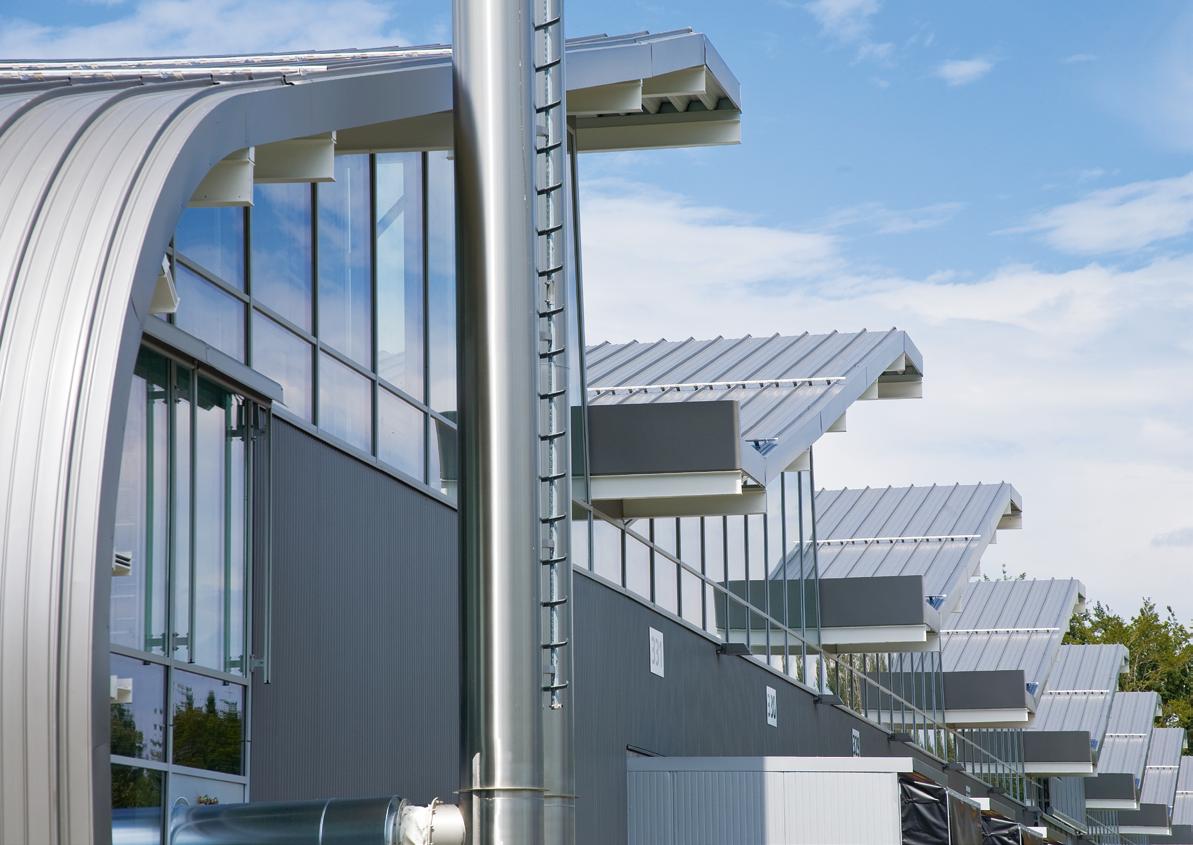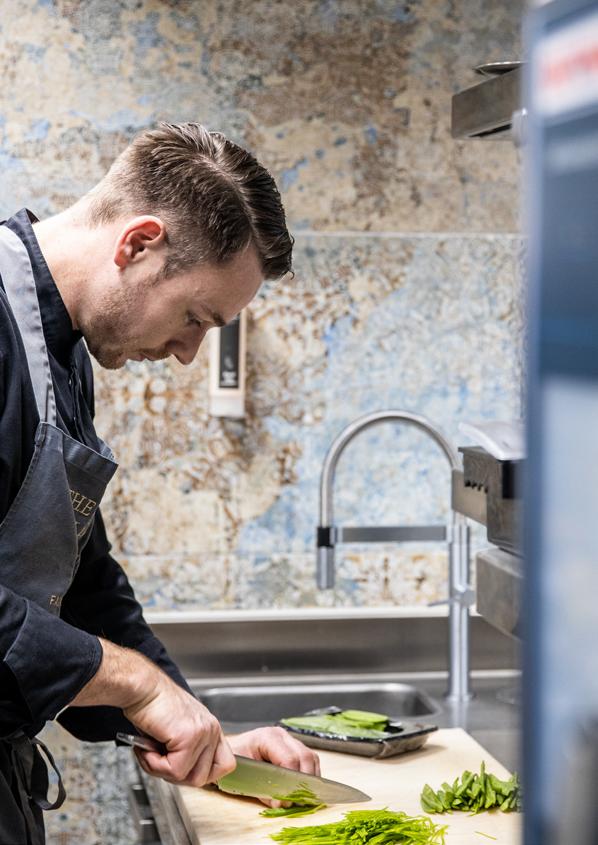36
Sustainability Report 2020 re-invented
98% of company vehicles with internal combustion engines comply with the Euro-6 standard. We also use five small electric vehicles for in-house passenger transport. Despite the significant slump in sales volumes, specific fuel consumption per appliance produced rose only slightly by 3%, which was attributable to the contact restrictions due to coronavirus, the resultant cancellations of trade fairs, customer events and customer visits, and a significant increase in working from home among employees at the sites. Mileage for the company’s fleet in 2020 fell by around 20% year on year. Fuel consumption per kilometre travelled fell slightly by 1%. Since fiscal 2019, the criteria applied are the mileage of all passenger cars and, in accordance with ISO 14001 and 50001, the key performance indicator “litres per 100 km”. Emissions By using modern building technology and optimising our production processes, we hold CO2 emissions to a low level. From 2010 to 2019, we maintained total CO2 emissions at a constant level, while the number of appliances we produced was roughly doubled. CO2 emissions per appliance produced were therefore approximately halved.
Sustainability Report 2020 re-invented
Customer-focused packaging SDG 12 Wherever possible, we use recyclable or environmentally friendly materials for packaging our combi-steamers.
Wherever it makes sense, we use recyclable or environmentally friendly materials. We especially try to avoid or reduce plastic and foil wherever the specific product characteristics make that possible. The corrugated cardboard packaging used for our appliances consists of 75% recycled material. We focus in particular on avoiding transport damage by using suitable packaging materials. The table below shows the distribution of packaging materials. Total amount of packaging materials RATIONAL Group 2020 in tonnes
2019
% of total
2020
% of total
1,184 31 1,313 37 In 2020, CO2 emissions were reduced further by around one- Cardboard Plastic 622 16 492 14 third as a result of the sharp decline in activities due to Foil 173 5 124 4 coronavirus. In particular, less air travel led to a significant Wood 1,792 48 1,573 45 drop of 71%. We also halved emissions from energy conTotal 3,771 3,502 sumption. Since 1 July 2020, the electricity we obtain from our power utility is generated solely from renewable sources (green electricity). In addition, the lower mileage travelled by The packaging we use for our appliances is almost fully re our company cars — and, doubtless, by employees with their cyclable. As part of our switch to the new appliance series iCombi and iVario, we again significantly increased the ratio private cars — reduced emissions by around 20%. of cardboard. However, that increases the overall weight of the packaging for our appliances. Our service parts and accessories are almost exclusively packaged in cardboard CO2 emissions and wood. It is only for care products that we primarily have in tonnes 2019 2020 Change in % to rely on plastic packaging. Most of these are sold in the Scope 1 (fleet, heating energy) 2,588 2,083 –20 form of tabs, while a small amount is also sold as a liquid Scope 2 (electricity) 3,150 1,484 –53 product. To permanently ensure the product quality, the Scope 3 (flights) 3,065 898 –71 liquids must usually be packaged in canisters or in plastic 8,804 4,465 –49 Total CO2 emissions buckets and foil. Accordingly, around 90% of the packaging Per appliance produced 0.099 0.066 –34 material is plastic or foil.
“We will either find a way or make one.” Hannibal Barkas (around 247–183 BC), Carthaginian general
37





